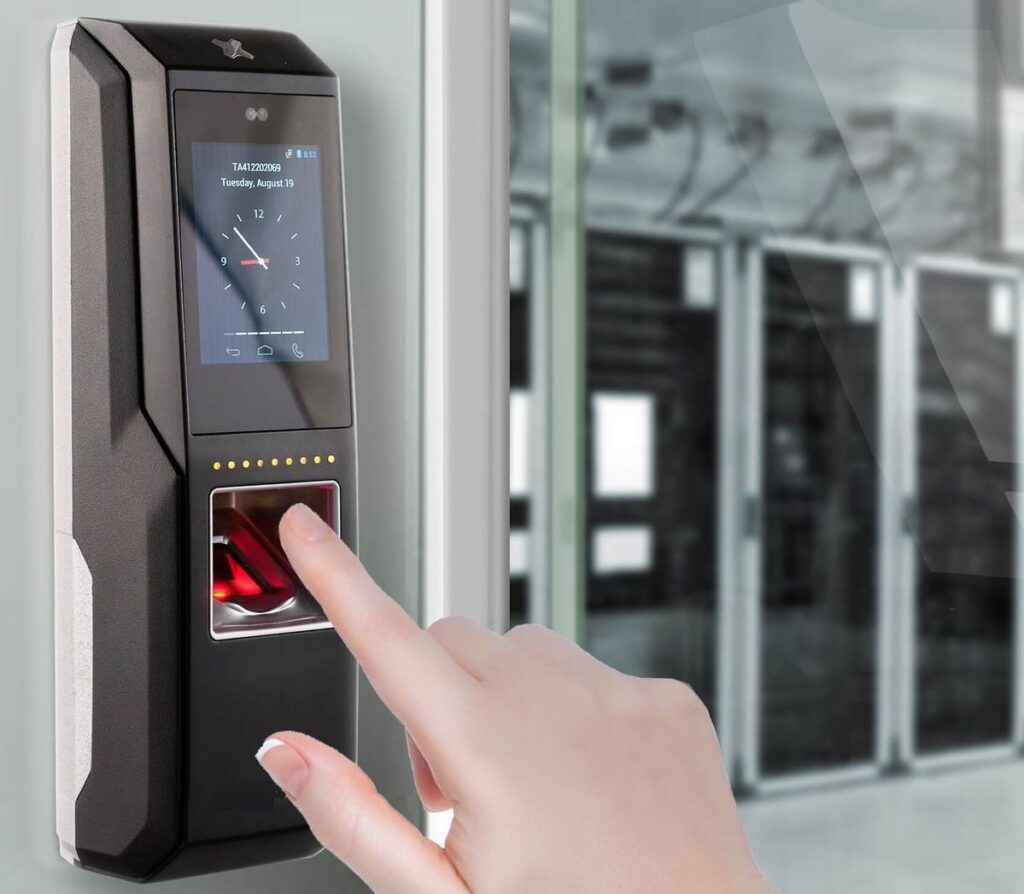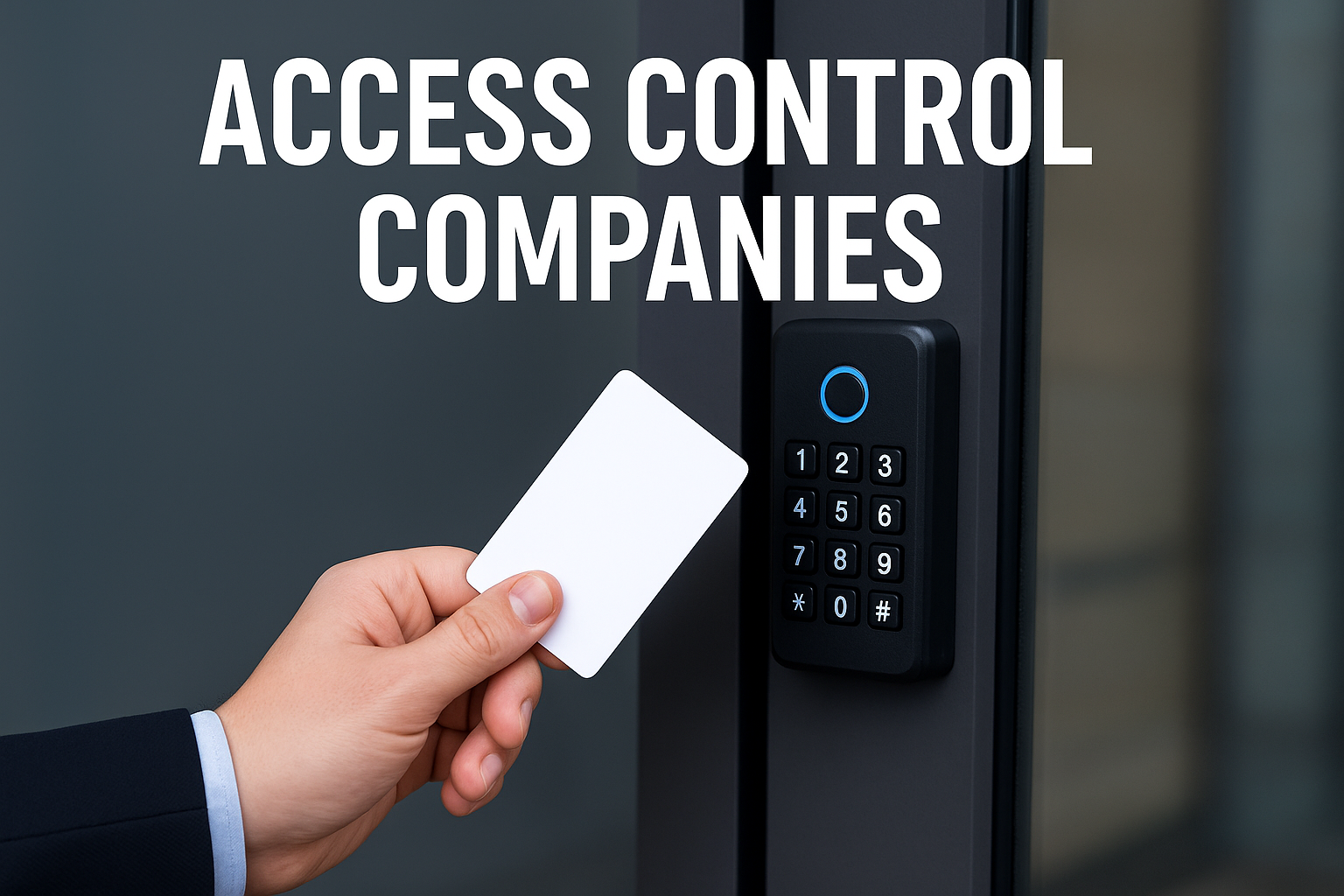Access Control Companies in the UK: Finding the Right Security Partner
If you run a business in the UK, you’ll know that keeping your premises secure isn’t just about locking the door at night. From protecting expensive equipment to making sure staff and visitors are safe, controlling who can get in – and when – is absolutely vital. This is where access control companies step in.
But here’s the tricky part: the UK has hundreds of security firms offering door entry systems, key cards, and high-tech biometric solutions. How do you choose one that’s right for you? Let’s break it down in plain English.
What Do Access Control Companies Actually Do?

At the simplest level, access control is about deciding who’s allowed through a door or gate. Instead of relying on old-fashioned keys (which get lost, copied, or stolen), modern systems use things like:
-
- Swipe cards and fobs
-
- PIN codes
-
- Fingerprint or facial recognition scanners
-
- Mobile phone apps
-
- Cloud-based dashboards
An access control company won’t just sell you a box of equipment and leave you to it. They’ll visit your site, look at how your business operates, and design a system that fits your day-to-day needs. Many also install and maintain the system, so you’re not left panicking if a door reader stops working on a Monday morning.
Why UK Businesses Rely on Access Control Companies
The good ones don’t just think about the here and now – they help future-proof your security. That might mean choosing hardware that can be upgraded later or setting up software so you can manage access from your phone.
There are a few reasons UK businesses stick with trusted providers:
-
- Compliance – UK firms need to meet security standards like BS EN 60839.
-
- Integration – Access control can link with CCTV, alarms, and even time-logging systems.
-
- Local knowledge – A company based in the UK can respond quickly if you need urgent help.
-
- Custom design – Not all offices, warehouses, or schools are built the same.
Types of Access Control You’ll See in the UK

Access control companies offer a range of systems, from basic to cutting-edge. Some of the most common include:
Standalone Units
Perfect for smaller premises like retail shops or small offices. Each door works independently, so there’s no central computer to manage.
Networked Systems
Ideal for larger setups like schools, hospitals, or multi-floor office buildings. Everything’s connected to a central server, making it easy to update permissions for dozens of doors at once.
Cloud-Based Solutions
Gaining popularity in the UK, these systems let you manage access remotely – handy if you run multiple sites or travel frequently.
Biometric Systems
These use fingerprints, facial scans, or iris recognition. They’re harder to trick than a card or PIN, but they do cost more.
Who Uses Access Control in the UK?
You’d be surprised how many industries use these systems daily:
-
- Schools and universities – to keep students safe and prevent strangers wandering in.
-
- Healthcare facilities – to protect patient records and medication storage.
-
- Corporate offices – to secure confidential documents and sensitive areas.
-
- Logistics and warehousing – to keep valuable stock safe from both outsiders and internal theft.
-
- Government buildings – for controlling entry to secure areas.
The important thing is that the system matches the environment. A small coffee shop in Bristol doesn’t need the same setup as a data centre in London.
Choosing the Right Access Control Company in the UK
If you search “access control companies” online, you’ll see a flood of results. To make sure you don’t waste money or end up with the wrong system, look out for:
-
- Certifications – NSI or SSAIB approval means the company meets strict security standards.
-
- Experience – Ask about similar projects they’ve handled in the UK.
-
- Support – Will they answer the phone at 10pm if there’s an issue?
-
- Flexibility – Can the system be upgraded as your needs change?
-
- Transparent pricing – Avoid firms that give vague quotes without a breakdown.
A good tip is to ask for a site survey. Reputable companies will come to you, assess the property, and explain what will work best before you commit.
UK Access Control Trends Worth Knowing
Technology moves fast, and access control companies are adapting to keep up. In the UK, we’re seeing:
-
- Touch-free entry – Originally popular during the pandemic, now used for hygiene and convenience.
-
- Mobile access – Staff can open doors with their smartphones, so no more lost cards.
-
- AI-powered monitoring – Systems that spot unusual activity and send instant alerts.
-
- Sustainable hardware – Lower energy use and longer lifespans.
If you’re investing now, it’s worth choosing something that won’t be outdated in two years.
Pitfalls to Avoid
Even with so many good providers out there, mistakes happen. Some common ones include:
-
- Going for the cheapest option and regretting it when reliability drops.
-
- Choosing a system that can’t handle growth – if you add more doors, you’re stuck.
-
- Forgetting about staff training – a great system is useless if no one knows how to use it.
-
- Skipping maintenance – which can lead to sudden, expensive failures.
How Much Does It Cost in the UK?
Prices vary based on the size of your property and the complexity of the system. To give you a ballpark:
-
- Standalone systems: £500–£1,500
-
- Networked systems: £2,000–£10,000+
-
- Biometric systems: £3,000–£15,000+
Most access control companies offer free quotes, so it’s worth getting at least two or three before making a decision.
Final Thoughts
Good security isn’t just about locks and alarms – it’s about control. The right access control companies will help you protect your business, your staff, and your peace of mind.
If you’re based in the UK, start by thinking about what you actually need. Do you want to track staff entry times? Do you need certain rooms locked down during off-hours? Once you know, speak to a few access control local providers, compare their solutions, and make sure you’re choosing a partner who’ll still be there for you years down the line.
In a world where security threats are getting smarter, having a reliable system – and a reliable company behind it – is one of the best investments you can make.

